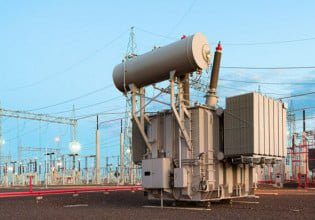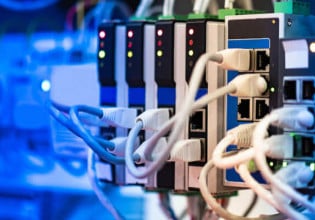Factorial Energy Targets EVs with 40 Amp-hour Solid-State Battery
Rechargeable, sustainable, and energy-efficient, the solid-state battery (SSB) can potentially put an end to lithium-ion batteries and redefine energy storage systems for electric vehicles (EVs).
Over the last few years, Factorial Energy has poured in research, time, and money into backing their own in-house solid-state battery cell. As of this year, Factorial is introducing an industry first, a 40 Amp-hour solid-state battery cell. This battery cell will mainly be targeting EVs but there is some versatility since it could also function as the focal point in renewable energy storage designs as well as high-voltage systems.

Factorial aims to outperform current lithium-ion battery technology with its new, safe solid-state batteries for EVs, smart homes, and critical design applications. Image used courtesy of Factorial Energy.
Factorial Enables a Safe and Reliable Battery Designs with FEST
The once battery startup, Factorial Energy, has drawn strong interest for potentially changing how automotive manufacturers develop battery systems. What could drive the targeted automotive applications towards Factorial’s views? A solid-state battery that yields over 20% driving range improvement over industry-dominant lithium-ion.
Factorial Energy’s Factorial Electrolyte System Technology (FEST), is a solid electrolyte material that enables safe and reliable cell performance with high-voltage and high-energy-density electrodes through SSB technology. FEST is a safer route than standard lithium-ion and with SSB, developers can replace combustible liquid electrolytes with a safer solid-state electrolyte design.
The foundation of FEST is Factorial’s integration of SSBs and its solid electrolyte characteristic. There are a few traits that separate solid from liquid electrolytes, the main reason being liquid electrolytes are highly flammable. If liquid electrolyte-based battery designs are laid out, they would put many design limitations and requirements such as thermal and temperature management due to possible leakage the batteries could have. Furthermore, the liquid electrolyte’s structure could face decomposition as soon as the battery system reaches high voltages.
By going with solid-electrolyte instead, developers can create battery and energy storage systems with higher energy densities while avoiding issues that arise in liquid-based batteries. This is the main reason Factorial Energy has hit the ground running in the battery game. With battery platforms based on Factorial’s FEST, automotive applications such as EV charging will be able to yield an increase in driving range, without sacrificing pack longevity.
Bringing FEST into Current EV Battery System Production
One of the first things that come to mind about solid-state batteries becoming mass-produced is, how will manufacturers accomplish such an intricate process? Newly appointed Executive Chairman, Joe Taylor was confident in sharing how EV manufacturers would be able to get their solid-state technology into mass production, "Our technology can be easily integrated into existing lithium-ion battery manufacturing infrastructure – which makes Factorial an immediately viable partner for every automaker pursuing EVs."
Factorial’s CEO Siyu Huang added excitement towards Factorial’s battery milestone, “We are thrilled to be the first to reach the 40 Amp-hour benchmarks for a solid-state cell, and I look forward to sharing more of our team's successes in the months to come.”
Solid electrolytes will allow for an SSB to target energy density, battery cycle life, and safety for the next generation of EV battery systems. With this technology, Factorial has the attention of various automotive partners and they are validating FEST as it is incorporated into existing EV production chains.






